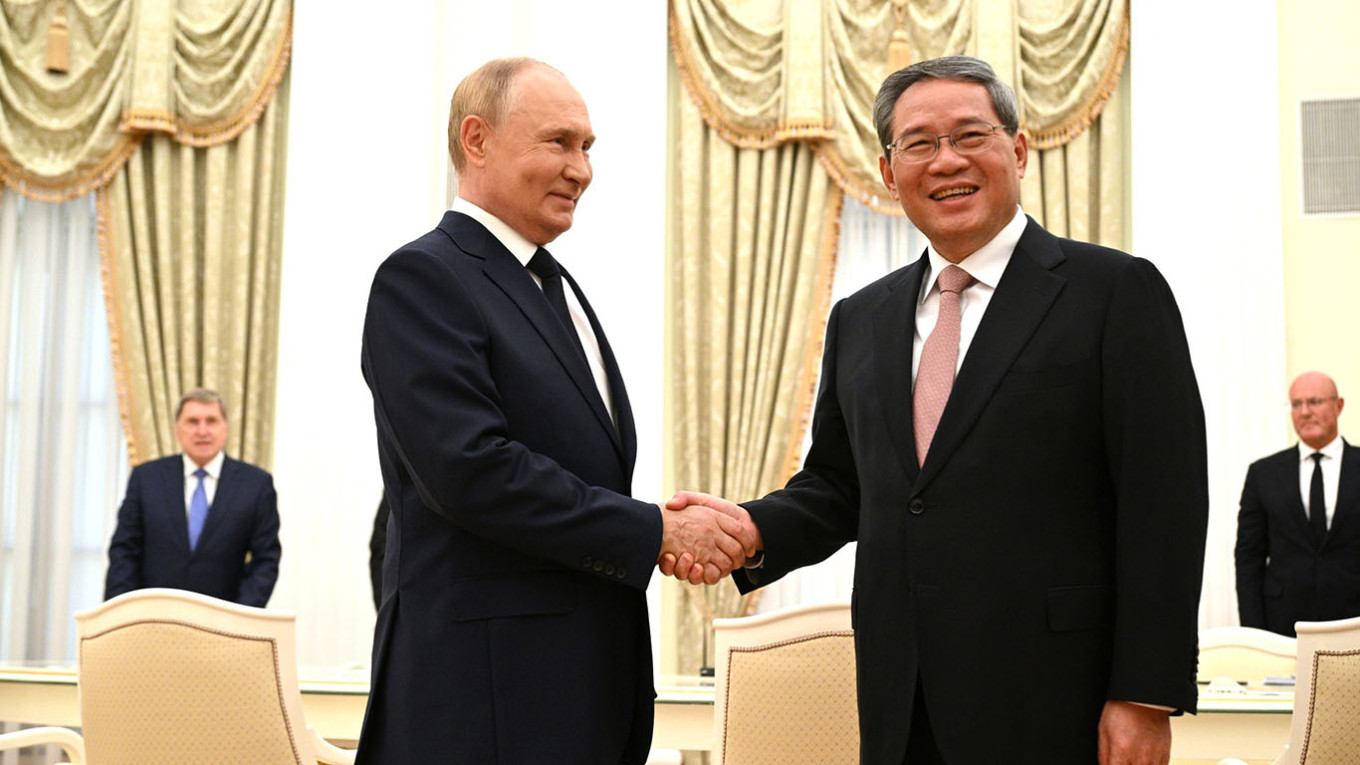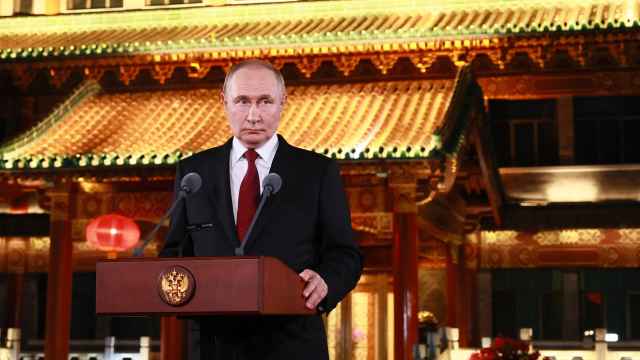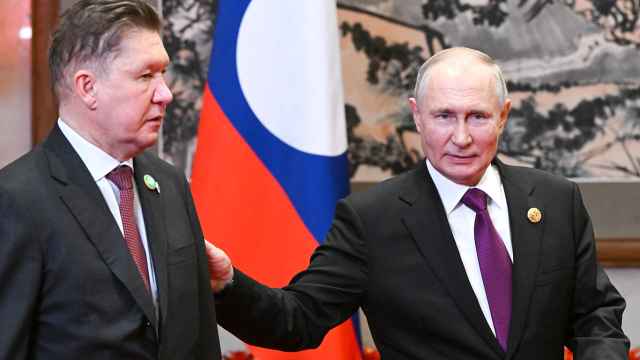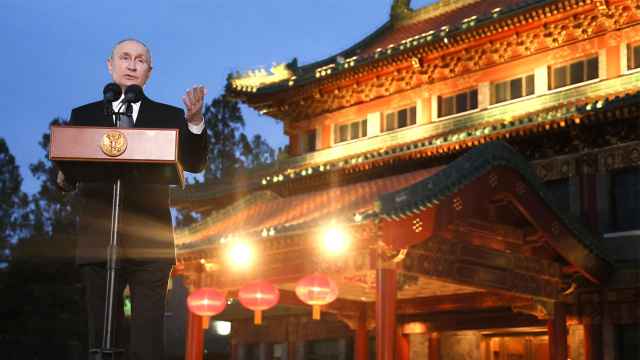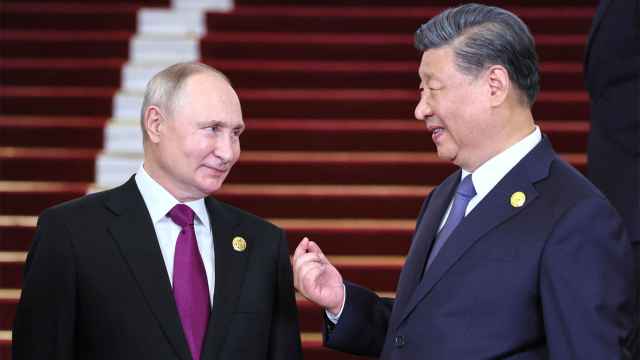President Vladimir Putin said Wednesday that Russia's economic and trade links with China are "yielding results" as he welcomed Chinese Premier Li Qiang to the Kremlin.
Moscow has looked to Beijing as an economic lifeline since the Ukraine conflict began, with the two boosting trade to record highs as Russia faces heavy economic sanctions from the West.
"Our trade relations are developing successfully... The attention that the two governments on both sides are paying to trade and economic ties is yielding results," Putin said in a meeting with Li.
"Our states have worked out large-scale joint plans, projects in economic and humanitarian spheres, we expect for many years ahead," he added.
Li told Putin that "Chinese-Russian relations are at an unprecedentedly high level," according to the Kremlin's translation of his remarks, saying Putin and Chinese leader Xi Jinping had created a "strong impulse for further deepening of bilateral relations."
In a separate meeting with Li, Russian Prime Minister Mikhail Mishustin hailed the countries' links as a stabilizing element.
"Our partnership and strategic cooperation is especially important in a situation where new contours of the global order are being formed," Mishustin said.
"And in these conditions, the Russia-China link is a powerful stabilizing factor, promoting economic growth in both countries and increasing quality of life for our citizens," the Russian premier said.
Citing a joint communique, Chinese state media Xinhua said the two sides agreed to optimize trade structure, grow bilateral trade volume and promote development of e-commerce.
It also said they would make efforts "to expand mutually beneficial cooperation in the Arctic" as well as bilateral agricultural trade.
Trade ties
Moscow and Beijing both rail against "Western hegemony," particularly what they see as U.S. domination of global affairs, and Mishustin on Wednesday said the two countries must "focus efforts on protecting our shared interests."
Xinhua said the two denounced countries that "use the so-called 'rules-based order' to maintain their own privileges" and decried their obstruction of "the collective rise of emerging markets and developing countries."
Facing Western sanctions, Russia has pushed to use non-Western currencies as the basis for its trade.
"Today the share of the ruble and the yuan in mutual settlements is already over 95%," Mishustin said.
China presents itself as a neutral party in Russia's offensive on Ukraine and says it is not sending lethal assistance to either side, unlike the United States and other Western nations.
But it is a close political and economic ally of Russia, and NATO members have branded Beijing a "decisive enabler" of the conflict, which it has never condemned.
Beijing has also benefited from cheap Russian energy imports and access to vast natural resources, including steady gas shipments through the Power of Siberia pipeline.
Li's visit comes as India's Prime Minister Narendra Modi is visiting Poland, set to make his first visit to Ukraine at the end of the week. India, China's regional rival, is also close with Russia, but Modi has repeatedly called for an end to the conflict.
A Message from The Moscow Times:
Dear readers,
We are facing unprecedented challenges. Russia's Prosecutor General's Office has designated The Moscow Times as an "undesirable" organization, criminalizing our work and putting our staff at risk of prosecution. This follows our earlier unjust labeling as a "foreign agent."
These actions are direct attempts to silence independent journalism in Russia. The authorities claim our work "discredits the decisions of the Russian leadership." We see things differently: we strive to provide accurate, unbiased reporting on Russia.
We, the journalists of The Moscow Times, refuse to be silenced. But to continue our work, we need your help.
Your support, no matter how small, makes a world of difference. If you can, please support us monthly starting from just $2. It's quick to set up, and every contribution makes a significant impact.
By supporting The Moscow Times, you're defending open, independent journalism in the face of repression. Thank you for standing with us.
Remind me later.


